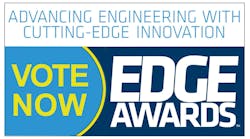FDT Group's Schulz Believes FDI Cooperation Will Drive Further Standards Harmonization
The announcement late last year from the EDDL Cooperation Team (ECT) that it was to be renamed the FDI Cooperation and that its then-existing technology trade organization members -- the Fieldbus Foundation, the HART Communications Foundation, the OPC Foundation, the PROFIBUS Nutzerorganisation and the FDT Group -- were to be joined by all of the major DCS vendors and by the largest independent device vendor in a bid to accelerate the deployment of FDI (Field Device Integration) technology has been followed by a flurry of individual announcements from the various bodies and companies, each lending its support, albeit with varying degrees of enthusiasm.
Plain Vanilla Emerson
As is the way of these things, each has released what is essentially the same statement, much of it word for word, while adding its own particular flavor and emphasis. Thus Emerson, which for a long time argued that FDT was superfluous and that all the industry's needs could be met by EDDL, has stuck to the plain vanilla version, merely including a quote from chief strategic officer Peter Zornio welcoming the renewed commitment and adding that "We see this as an opportunity to achieve the ultimate interoperability across host systems, field devices and communication protocols."
Invensys on the other hand, as a long term enthusiast for FDT whose former European chief technology officer, Hartmut Wallraf, still chairs the FDT Group, is a good deal more expansive, with an extensive quote from senior vice president for portfolio and strategy, Rashesh Mody, arguing that it will allow "manufacturing and process operations executives to make profitable tradeoffs in real time" and vendors to "strengthen our focus on providing value-added applications as opposed to supporting hundreds of different devices." In effect, and before reverting to the common text, the IOM release then goes on briefly to rehearse the original arguments in favor of FDT as much as to expound the advantages of FDI. All of which tends to suggest that while the various contenders in the FDT-EDDL standoff of recent years have buried their respective hatchets, they've kept careful note of the locations of the graves.
INSIDER's suggestion in last month's issue, based in part on views expressed at the time by the Group's retiring managing director, Flavio Tolfo, that the FDT Group's decision in April 2009 to go ahead with FDT 2.0 suggested a less than whole hearted support on its part for FDI, prompted an immediate response taking exception to our comments from his successor Glenn Schulz. In a subsequent telephone conversation, Schulz stressed that "We're an active supporter of and contributor to FDI It's doing some very valuable things for the industry. And FDT leverages EDDL so we have a vested interest."
Outstanding Issues
Schulz also believes that the involvement of the DCS vendors will ensure that some of the outstanding issues which haven't been addressed will now be tackled. Chief of these, and in his view arguably more important even than FDI itself, is the standardization of the DD (Device Description) binary files used with the various fieldbus protocols. As he explained, while earlier work had resulted in a harmonized EDDL, the binary formats in which DDs are created for Foundation fieldbus, Profibus and HART are radically different and essentially incompatible. As a result, device vendors, who must of necessity support all three process industry protocols, have to conduct all the relevant development work in triplicate with consequent effects both on cost and time to market. At the same time, a similar degree of complexity is introduced for host systems, which may be interfaced to multiple fieldbuses and thus have to handle DDs in multiple formats. The participation of the DCS vendors, will, says Schulz, ensure that "we get this DD harmonization squared away."
With FDI close to becoming reality, what is the FDT Group response to the original criticism that FDT, unlike EDDL, is operating-system-dependent and thus ultimately subject to the whims of Microsoft? "We have to accept that FDT and FDI are both being developed on .NET," he says. However, if Microsoft eventually stopped supporting .NET, it would be handled as a normal maintenance issue requiring the development of a migration path to the new technology while maintaining backwards compatibility. "That is exactly what's being done with FDT 2.0. It ensures the old COM files will work with the new .NET version."
Factory Automation
FDI is wholly centred on the needs of the process automaton industry, whereas the FDT Group's remit extends right across factory automation as well. Its challenge must therefore be to balance the needs of these two constituencies, although Schulz believes that the issues are more about priorities than technology. Longer term he sees the true importance of FDI being in demonstrating how standards could evolve in the future. "Can we collapse standards across the industry?" he asks. It's an ambition that the FDT Group has included in its future objectives. "We want to be an active supporter of that happening."
- How will FDI actually work? Happily the current issue of the FDT Group newsletter includes a timely explanation. In essence it describes an architecture in which an "FDI Package" consisting of the binary Device Description (DD), some FDT related business logic and a definition of the user interface is created for a particular device. Remember, one of the criticisms of EDDL is that the host system decides how the information in the DD is displayed. The package also includes a User Interface Plug (UIP) that enables it to "plug in" to a standard FDT frame using a standard DTM which can be used to process any FDI package. The result, it is claimed, is a standard method for incorporating EDDL into FDT.



